Why is My Room So Hot Compared to Other Rooms?
Author: Rick Worst | Editor: Omar Alonso
Review & Research: Jen Worst & Chris Miller
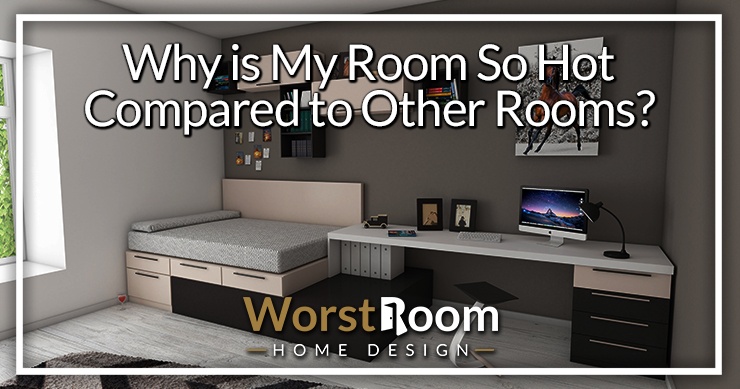
You have your AC on, but it’s still too hot. Why is my room so hot compared to the rest of the house? A room in your house could be hot due to issues with your air conditioning unit, heating system, or home layout. Let's go over a quick but detailed explanation of why your living space is stifling hot and the possible fixes.
Why is My Room So Hot?
You can figure this problem out for your unique situation. Any room that is hotter than others compared to the rest of the house will have either one or a combination of the problems mentioned below. It will usually come down to the easier-to-manage ones related to air conditioning.
Inefficient Insulation
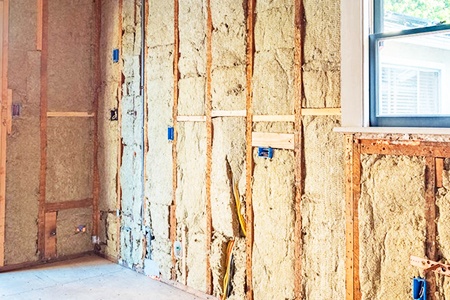
Insulation plays a complementary role in your HVAC system. It minimizes heat transfer in or out of your house, keeping it within the desired temperature range.
Without insulation, the internal temperature would match the environment. In an under-insulated homes, the HVAC system struggles to maintain the desired temperature.
Insulation may vary from room to room. Rooms with poor insulation may get hotter than their well-insulated counterparts.
The attic is often neglected when assessing the insulation in a home. A poorly insulated attic allows heat to leave your house in the winter, leaving your rooms colder. In the summer, poor insulation allows heat into your home. As a result, some rooms will become hotter.
Your energy bills will also skyrocket as the HVAC system works harder to maintain optimal temperatures. Inspect your house for possible leaks in the insulation and look out for under-insulated or worn-out insulation when you notice these issues.
Clogged Air Filters
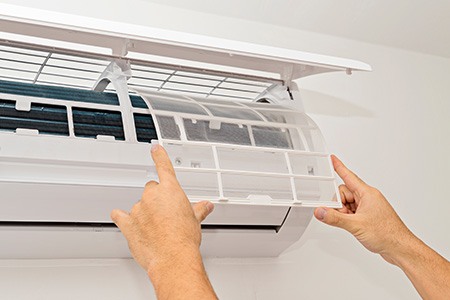
If you have yet to change your air filter, it could be the reason your room is so hot. Air filters are part of any types of air conditioners that are critical to proper functioning to keep the air in your home clean. These filters trap dirt, pet dander, and other particles in the air from circulating your home.
However, trapped debris can clog the air filter reducing its effectiveness at warming or cooling your house. The debris also restricts cool airflow in the warmer months. The result is a significantly warmer and uncomfortable house. A clogged air filter forces your HVAC system to work harder to maintain optimal temperatures.
Here are the signs of a clogged air filter:
- Dust and dirt accumulate around the AC vents
- The filter looks dirty, damaged, or torn
- Your energy bills are rising
- Your room or home takes longer to cool or heat
- Hot AC unit
Leaving your AC unit with a clogged air filter could lead to additional problems and costly repairs. Remove the clogged filter and replace it. This is the first place to start when investigating the question "why is my bedroom so hot?".
Home Design & Layout
Why is my room so hot? Your home’s orientation, layout, and size affect the effectiveness of your heating system. You just got the bad luck of the draw, but it can be resolved.
South and west-facing rooms have more exposure to direct sunlight. As a result, they become warmer than other rooms in the house. The same applies to rooms with larger windows.
A multi-story house relying on a single heating/cooling system also has significant temperature differences. Rooms on the upper levels will be warmer than those on the lower levels.
Even single-level houses have temperature variations depending on how far they are from the trunk duct. Rooms closer to the trunk duct are warmer in the summer and cooler in the winter.
HVAC zoning is a great way to maintain optimal temperatures in multi-level houses. Zoning accounts for each space and its heating/cooling requirements. Professionals then install a system that serves these needs while keeping your home energy efficient.
Closed Air Vents & Dampers
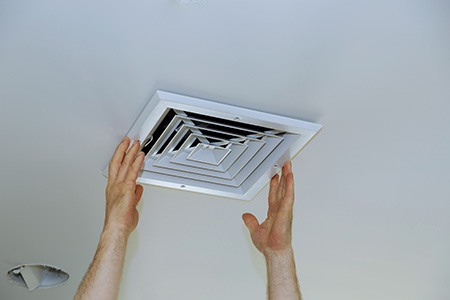
There’s a common myth that claims closing air vents in unused rooms helps cool other rooms faster. Not only is this wrong, but it can cause inconsistent temperature regulation. It can result in your home becoming hotter. This is not an answer to "why does my room get so hot?" unfortunately.
Closed air vents can have unintended effects, including duct leaks. They also decrease the return airflow leading to an overheated heat exchanger. Carbon monoxide is released into your house when the heat exchanger is damaged.
On the other hand, dampers may be closed or open depending on the season. Closing them in winter allows the heat to rise and warm the upstairs rooms. But locking them in summer makes the upper sections of the house hotter.
If you open the dampers and your room is still hot, it could be due to clogged air vents or leakages in the HVAC ducts.
Leaking Ducts
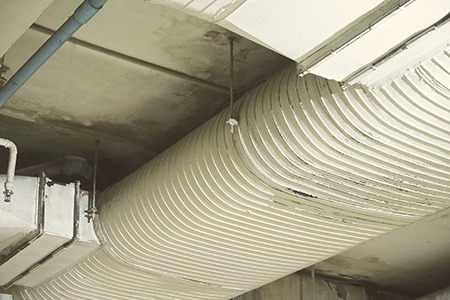
Damage to your HVAC’s ductwork can lead to leakages of conditioned air. Duct leakages occur due to worn-out ducts or poorly installed systems. Such leakages cause unnecessary energy costs. They also make some rooms hotter in summer and cooler in winter.
Leaking ducts lose conditioned air into undesired locations. This limits the air reaching the heating/cooling unit of the HVAC system resulting in imbalanced heating and cooling.
Leakages in the ductwork can also allow dust and other particles into the ducts. The dust restricts airflow and worsens the heating/cooling issue when they accumulate.
Leakages in the ductwork also cause poor air quality, increased dust, and frequent repairs for relatively new HVAC systems. This can be an answer to "why is my room the hottest in the house?" because much of your intended cool air is leaking out before it gets to you.
Under/Oversized HVAC System
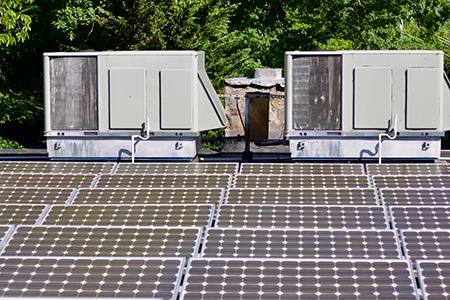
Successful heating or cooling requires an HVAC system of the correct size. An undersized HVAC system might work well, but you’ll need to keep it on all the time. Even with it running continuously, an undersized HVAC system might not cool your house to comfortable levels.
An oversized HVAC system will make your house uncomfortable due to higher humidity levels. It will also work in shorter bursts to cool or heat your home, increasing its wear and tear.
Contact an HVAC professional to help determine whether you have the right HVAC system size. The professional will evaluate your cooling needs and the size of your house to help you choose an efficient system.
Improper HVAC Zoning
HVAC zoning lets you set a specific temperature for each room instead of maintaining the entire house at the same temperature. Zoning is vital in multi-level homes due to natural differences between the higher and lower levels.
For multi-level homes, zoning introduces an HVAC system for each floor. This technique overcomes the natural tendency for warmer air to rise to upper levels, causing them to be hotter.
Zoning is also crucial for rooms on the same level. For instance, different people prefer lower or higher temperatures when sleeping. Zoning allows you to set room temperature limits based on the occupant’s needs.
Work with an HVAC company to help determine the most appropriate zoning for your home, depending on your family’s needs.
Thermostat Problems
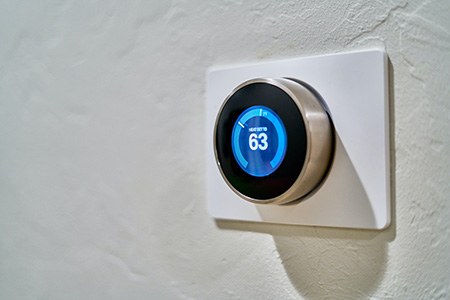
A well-functioning thermostat maintains your house or zone at the desired temperature. However, when the thermostat has problems, you will likely have hotter or colder rooms than expected.
Improper installation prevents the thermostat from maintaining the desired temperature. Call an expert to confirm the thermostat is installed correctly, especially if you have no power to your thermostat.
Your thermostat could also have issues when placed in the wrong position. Ideally, it should be away from any heat sources. Grime and debris build up inside the thermostat can also cause malfunctions.
You may also want to replace an older thermostat as it could malfunction, resulting in hotter/colder rooms.
Too Few Return Vents
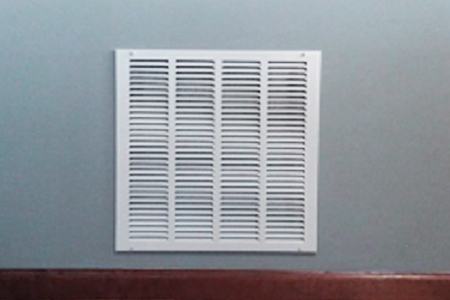
A return vent in an HVAC system sucks the air in a room and then sends it to the heating/cooling system. Vents stabilize the air pressure by sucking out extra air from a room.
The HVAC system can maintain a balanced atmosphere when there’s a balance between return and supply vents. However, when you have fewer return vents, some rooms become hotter than others.
In the summer, the rooms furthest from the HVAC system will be the hottest, and the reverse happens in the winter.
Fewer return vents also result in room air pressure differences. You may need a barometer for reliable air pressure readings.
Another clear sign you have fewer return vents is the air conditioner blows warm air while the furnace blows cooler air. This of course doesn't matter if you're using alternatives to central air. This indicates that not enough air is reaching the heating/cooling system.
Call an HVAC professional to check your ductwork if you have fewer return vents. They will check the current system for leakages and blockages that could restrict airflow. They will determine whether the existing return vents are enough to serve your home. These professionals will recommend the best return vent placement for efficient heating/cooling.
Air Balancing Issues
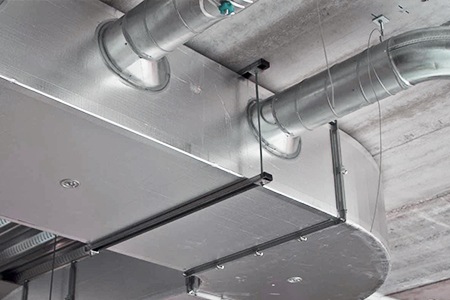
Air balancing issues in HVAC systems cause hot and cold spots in your home. Air balancing optimizes airflow in the HVAC system, maintaining the desired temperature throughout the house. Whenever someone asks "why is my room hotter than the rest of the house" it's nearly always an issue of air balancing to some degree.
Air balancing issues arise from undersized or few return vents that deliver insufficient air to the heating or cooling unit. Temperature differences in multi-level homes with improper zones contribute to air balancing issues.
Fix air balancing issues by adjusting the vents, cleaning your air filters, zoning your house appropriately, and installing enough return vents. If the problem persists, you may need to consult a professional to perform duct balancing, which is quite a substantial task. In the meantime, you can use any types of fans in your room to help the air circulate better.
That’s Why Your Room is the Hottest in the House
Why is my room so hot? Your HVAC system is the main culprit when one of your rooms is hotter than others. Your room could be hot due to improper insulation, zoning problems, clogged air filters, or the wrong HVAC system size. You can fix some of these issues, but others require the help of a professional.



